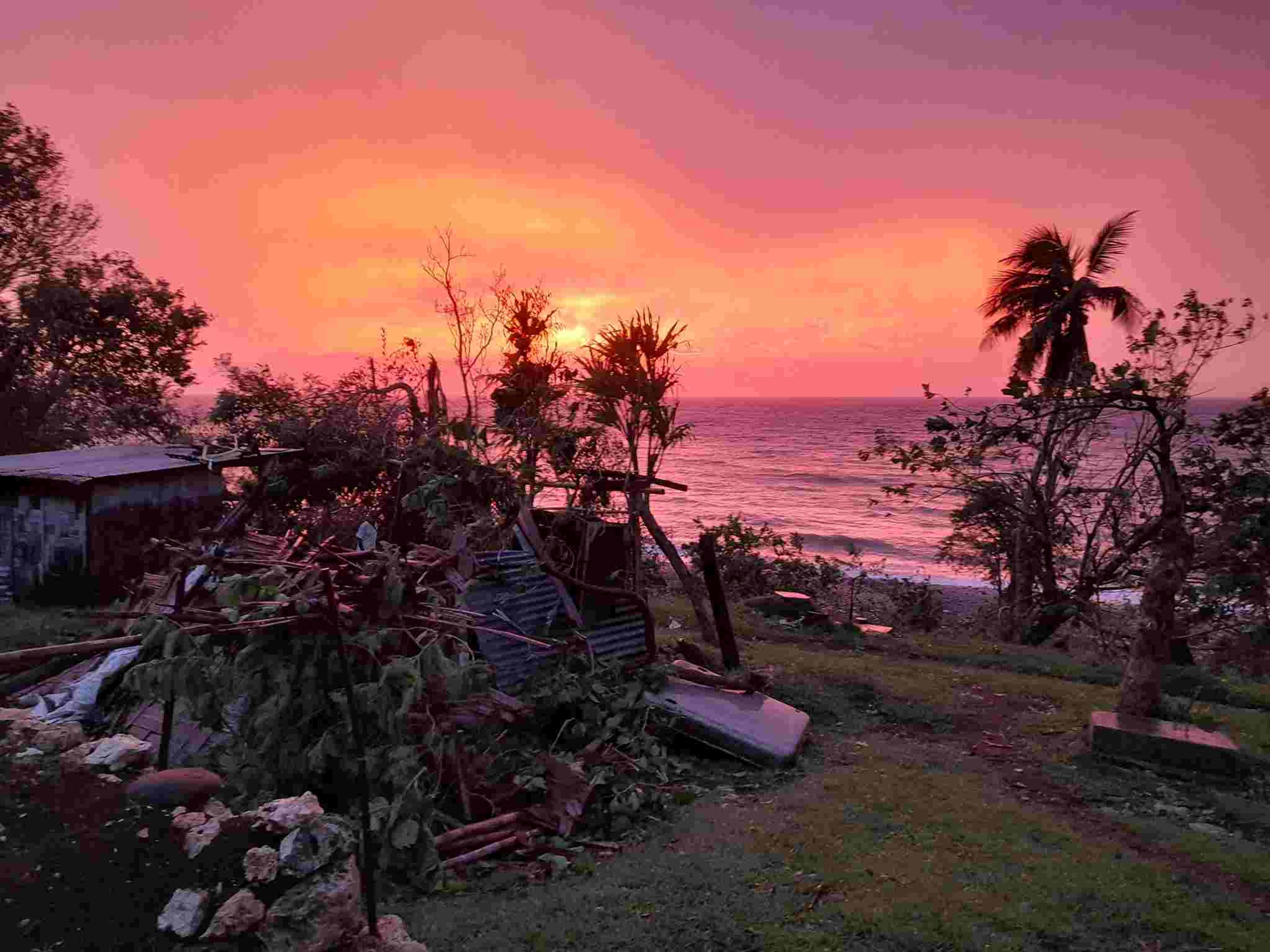

Sunset at Baravet, Pentecost Island, after Cyclone Lola 2023.
Photo/Facebook: Andrew Gray
'God will look after us': Pacific residents undeterred by looming climate change disasters
University of Auckland research shows many in the Pacific have no plans to leave their homes despite the risks climate change poses.


The Sāmoan Tenor named Pati who turned disadvantage into an operatic destiny

Realm relations in focus as Tokelau-NZ marks 100-year history


‘One of our most trusted leaders’: Tributes flow for a beloved rangatira

The Sāmoan Tenor named Pati who turned disadvantage into an operatic destiny

Realm relations in focus as Tokelau-NZ marks 100-year history

Despite the potential for climate change to bring increased weather disasters to the Pacific, new research suggests many in the region will refuse to move.
The University of Auckland conducted a "Pacific approach" project which looked into climate-related impacts on Pacific peoples through engaging participants using local languages at 16 community sites.
Co-lead Professor Yvonne Underhill-Sem says religion was among the many reasons behind those refusing to move.
"There are members of the Pacific communities who don't take climate change seriously," Underhill-Sem says.
"When you're talking to people who have just finished telling you how wet the soil is, how they've got raised garden beds but are saying 'what do you think you should do?'
"And [they're] like 'well God will look after us'."
The report suggested the Pacific populace will increase from 13 million to 20 million by 2050, with a majority of people living in the Pacific refusing to leave the region despite the onset of climate change.
Underhill-Sem says some would redirect others to focus on themselves and their families while ignoring the impacts of climate change.
"That was a concern about how many times that came up," she
says.
"Religious conviction does provide us succour and relief but it cannot blind us to the realities when you've got wet feet, when you can't grow the food you're growing, when you look out the window and your paupau are dying.
"All of those things there's a reality check."
She says however that not all religious people in the Pacific subscribe to the same notion, as some acknowledge climate change as a priority issue.
"The surprise to me is that the diversity of views co-exist.
"They co-exist in families, in communities, on islands and in some ways, that's an interesting thing because we do co-exist in the Pacific."
Underhill-Sem co-leads the team with Dr Tina Newport, who both are from the Cook Islands alongside Dr Roannie Ng Shiu from Sāmoa.
Their colleagues hail from Papua New Guinea, Solomon Islands, Kiribati, Tuvalu, Cook Islands, Niue and Tokelau.
Underhill-Sem hopes that the findings will help the serious challenges of climate mobility, particularly with a Pacific lens over the research.
She says stronger leadership is a key factor in mobilising communities.
"I think that's going to be the challenge is how do we ensure we got that leadership that's inclusive and takes people along and is innovative."
The university will continually release reports and policy briefs about climate mobility throughout the year.
Watch the full interview via 531pi's Facebook page below: